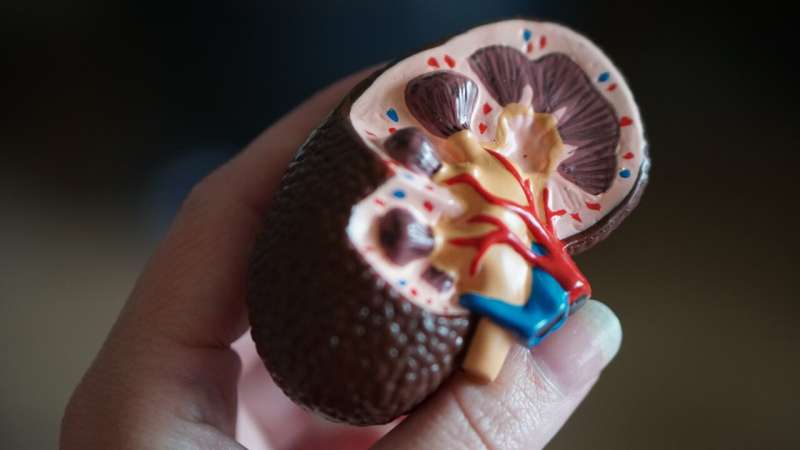This article has been reviewed according to Science X's editorial process and policies. Editors have highlighted the following attributes while ensuring the content's credibility:
fact-checked
peer-reviewed publication
trusted source
proofread
Trazadone and CBT no more effective than placebo for improving insomnia among long-term dialysis patients, finds study

A clinical trial of more than 120 persons undergoing hemodialysis found that cognitive behavioral therapy for insomnia (CBT-I) or trazodone were no more effective than placebo for improving mild to moderate chronic insomnia. These findings are important given the prevalence of insomnia among long-term dialysis patients. The study is published in Annals of Internal Medicine.
Insomnia affects up to 50 percent of persons undergoing long-term dialysis. Because insomnia is associated with exacerbated fatigue, depression, pain perception, and poor quality of life, patients place a high priority on finding effective treatments for this condition. CBT-I and trazodone are commonly used interventions to treat insomnia in the general population, but evidence for the efficacy and safety of insomnia treatments cannot be extrapolated to persons undergoing long-term dialysis.
A team led by researchers from the University of Washington randomly assigned 126 persons undergoing hemodialysis and experiencing chronic insomnia to 6 weeks of CBT-I, trazadone, or placebo to compare the effectiveness of the interventions. Participants were assessed for insomnia severity at 7 and 25 weeks using the Insomnia Severity Index (ISI) questionnaire.
The authors found that the change in ISI scores was the same for patients regardless of the intervention used, but serious adverse events occurred more frequently in participants using trazodone. According to the authors, given the high burden of insomnia in dialysis patients and high priority placed by patients for symptom relief, more trials are needed to investigate additional therapies for this condition.
An accompanying editorial by Ronald B. Postuma, MD, MSc highlights how the different causes of insomnia impact its treatment. The author notes that lack of efficacy observed with CBT-I in this study is remarkable, given the extremely strong evidence base for its utility in primary insomnia, suggesting that the typical psychophysiological drivers of insomnia in the general population may be simply less pertinent in hemodialysis patients.
The authors also highlights that future studies should explore medications specifically designed for insomnia and treatments that target restless legs and neuropathic pain.
More information: Effectiveness of Existing Insomnia Therapies for Patients Undergoing Hemodialysis, Annals of Internal Medicine (2024). DOI: 10.7326/M23-1794
Editorial:Annals of Internal Medicine (2024). www.acpjournals.org/doi/10.7326/M23-3448




















